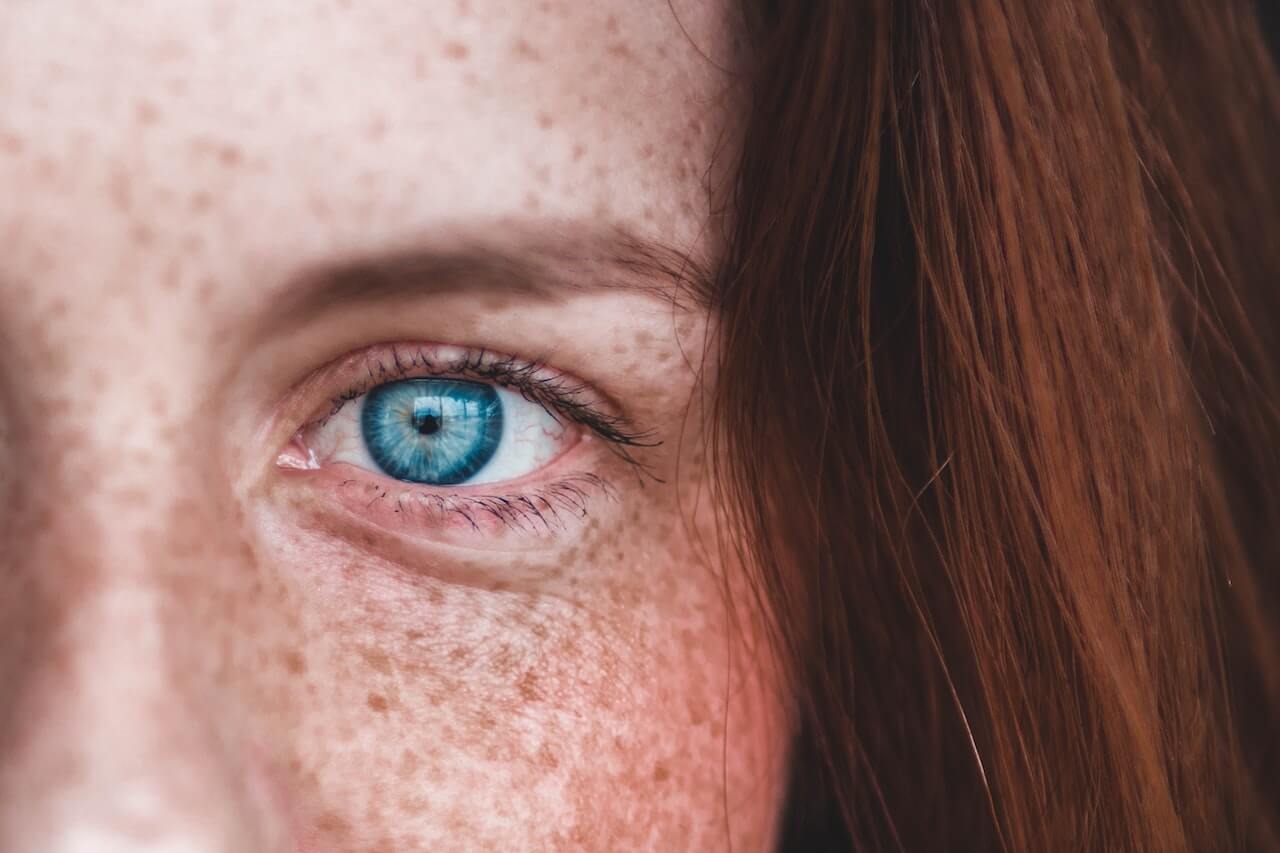Having a healthy head of hair can have a positive effect on your self-esteem. But healthy hair starts with a healthy scalp, and an itchy scalp can put a damper on things.
Unfortunately, there are all sorts of conditions that can lead to an itchy scalp. Some have serious consequences and can affect hair growth and result in hair loss, while others come and go with no major consequences. But if scalp itching becomes persistent and intolerable, know that you could experience unusual scalp conditions and even fungal infections. To help you combat excessive scratching and any consequential hair loss, VEGAMOUR spoke to the experts to find out what you can do to ease your itchy scalp and thin hair.
What Is an Itchy Scalp, Really?
An itchy scalp (also known as scalp pruritus) can occur for several reasons. It's a common problem that many people face over their lifetime and can trigger frustration, soreness and discomfort. Clinical dermatologist and researcher Dr. Ailynne Marie Vergara-Wijango explained to VEGAMOUR, "It may become concerning when scalp itching is excessive or constant. You might begin to notice crusty areas on your scalp, or you might experience more-than-normal hair loss."
Scalp itchiness doesn't necessarily lead to thinning hair or anything severe, but it can be a symptom of common scalp disorders and underlying skin conditions. If your scalp itches persistently and you're starting to notice sore patches, raised lumps or other noticeable changes, always seek out professional medical advice. Taking proactive measures at the first sign of these symptoms can help keep you from having to visit a doctor later to treat hair loss.
Read More: What Causes Hair Loss? Every Trigger Explained
What Conditions Can Cause an Itchy Scalp?
Monica Davis, a Dallas-based hairstylist and blogger, said, "An allergic reaction is a common cause of an itchy scalp. Many people are allergic to certain components of shampoos and other hair care products. Shampoo leftovers on poorly rinsed hair may irritate too." To reduce the risk of an itchy scalp and allergic reactions, it's a good idea to use formulas that don't contain harsh chemicals or irritating sulfates.
VEGAMOUR's GRO Revitalizing Shampoo is a super-clean, color-safe formula that's perfect for everyday use. It's made with no known toxins or hormones and has a gorgeous, fresh bergamot scent. The wild-harvested marula, baobab and ximenia oils help nourish the hair without leaving behind and pore-blocking residue on the scalp.
There are many reasons why your itchy scalp might be getting out of hand. If you're struggling with severe itching, it could be due to one or more of the following reasons.
Aggressive Hair Dyes
Davis explained that it's possible to experience allergic contact dermatitis from dyeing your hair. "Most often, people notice it after dyeing their hair black," she said. "Most black hair dyes have para-phenylenediamine (PPD) in them, which is a powerful irritant if not rinsed out well enough. The first thing you should do to identify the reason for the allergic reaction. Then exclude hair products and foods that are considered mild and strong allergens." If you can't decipher the allergic reactions on your own, go and get tested by your doctor.
Also: How Often Can You Dye Your Hair?
Dandruff
Dandruff commonly causes a dry, itchy scalp, but it won't likely lead to hair loss. It affects approximately 50% of the general population, and people with oily skin often suffer more. "Dandruff is one of the most common reasons for the itchy scalp as it involves scalp dryness and skin inflammation, which cause the sensation. Check out for white flakes on your head and shoulders. You can treat dandruff with special drugstore shampoos and rinses, but see your dermatologist for treatment options if the condition doesn't seem to go away after more than two weeks."
Seborrheic Dermatitis
Seborrheic dermatitis can occur if you suffer from a particularly bad case of dandruff. As the skin becomes inflamed, it reacts to the yeast overgrowth causing fungal infection and scalp itching. Research from the American Osteopathic College of Dermatology states that seborrheic dermatitis is essentially chronic eczema that impacts parts of the body that secrete excess sebum or oil, which would include your scalp.
Learn: What You Should Know About Seborrheic Dermatitis and Hair Loss
Atopic Dermatitis
Atopic dermatitis, aka atopic eczema, is the most common form of eczema and can make the skin feel dry, itchy and cracked. It's a chronic condition that's usually long-term. With effective treatment and topical steroids, you can treat atopic dermatitis, and the scratching can subside. The word 'atopic' actually means sensitive to allergens, so often eczema can spring up in those who suffer from asthma or hayfever. If you're concerned, explore allergy creams with your doctors.
Scalp Ringworm
If you're dealing with scalp ringworm (or tinea capitis), you could be experiencing some serious scalp itchiness. This type of fungal bacterial infection can intensely irritate the scalp and cause bald patches over time. "Fortunately, scalp ringworm isn't caused by actual worms on your head," said Davis. "The real reason isn't very nice either, though. It's a fungal disease with symptoms that include an intensely itchy scalp, pus-filled bumps and severe hair loss. Only prescription medication can deal with tinea capitis, so go to the doctor for some antifungal medications ASAP."
Shop the Kit: GRO Balance & Boost
Scalp Psoriasis
Scalp psoriasis (and psoriasis in general) is an autoimmune disease that creates red, silvery, scaly, inflamed patches of skin on the scalp. It's not contagious, and it often comes down to genetics. If it's not treated properly, then the persistent itching can trigger hair loss and hair thinning. Davis explained, "Our scalps are prone to the condition. More often, scalp psoriasis can go away pretty fast if treated properly and won't return until something like stress triggers it."
#include-related-slider#
Can an Itchy Scalp Cause Hair Loss?
The scalp is the bedrock for the hair follicle. Without a healthy scalp, you're risking temporary hair loss and even permanent hair loss if you don't tend to the issue in good time. While having an itchy scalp doesn't directly cause hair loss, the unrelenting scratching can create inflamed hair follicles. As you scratch, you damage hair follicles and weaken the hair from the root, leading to thinning hair and limited hair growth. It's also possible to break the hair off and create little stubs if you can't stop scratching — a real nightmare!
To help keep the hair follicles healthy, you must limit the scratching and work with a nourishing hair and scalp wellness routine.
What Else Can Cause Hair Loss?
If you do experience itchy scalp hair loss issues, you might also struggle with folliculitis linked to ingrown hairs. Symptoms include little itchy bumps and red inflammation, which will likely clear on their own with some TLC. A more severe form of folliculitis is related to an overgrowth of bacteria on your scalp or from bacteria entering a wound on your scalp, which can develop into a widespread infection characterized by crusty sores. If you experience an itchy scalp with sores, see your doctor for a diagnosis. To treat folliculitis effectively, you may need antibiotic pills or creams.
If you're struggling with increased hair fall, your problem could be linked to autoimmune diseases or hereditary hair loss. Female pattern hair loss or male pattern hair loss is often called androgenetic alopecia. It can occur when the hair follicles are more sensitive to the male sex hormones (androgens) and, in particular, dihydrotestosterone (DHT).
Alopecia areata is another autoimmune disorder that can provoke hair loss. With alopecia areata, the body's cells attack the hair follicle, causing an itchy scalp and hair loss. People suffering from the condition will experience some bald patches, which can be treated in various ways. If you're living with androgenetic alopecia or alopecia areata, always check in with a health care professional for their expert opinion and use products with a holistic slant to maintain your overall wellness.
Related: What Is Alopecia Areata? One Type of Hair Loss Explained
What Can You Do if You're Experiencing Thinning Hair?
If you're living with an itchy scalp and thinning hair, there are certain things you can do to help slow down hair. First things first, you need to start taking care of your scalp. In clinical trials, scalp massaging led to increased hair thickness by inducing healthy stretching linked to the dermal papilla cells in the subcutaneous tissue. If you want to help encourage new hair growth and a healthy, glossy, nourished head of hair, consider adding scalp massaging into your routine.
GRO Revitalizing Scalp Massager features a series of carefully structured bristles that stimulate the scalp and help the blood flow easily. You can use it on a dry or wet scalp, and it can provide a relaxing, exhilarating and enjoyable addition to your regular hair care routine. You can use the scalp massager on its own or to use it to work in your favorite shampoo or serum.
Scalp Wellness Is Hair Wellness
For best results, initiate a wellness routine that nourishes your scalp from the inside out. To up your hair care game in a holistic, chemical-free way, explore VEGAMOUR's extensive range. From hair serums to tasty, nutritious supplements, your hair can soon appear healthier — and your confidence is sure to soar.
#include-related-slider#
More From VEGAMOUR
Photo credit: Helena Ije/Pexels
Back


















